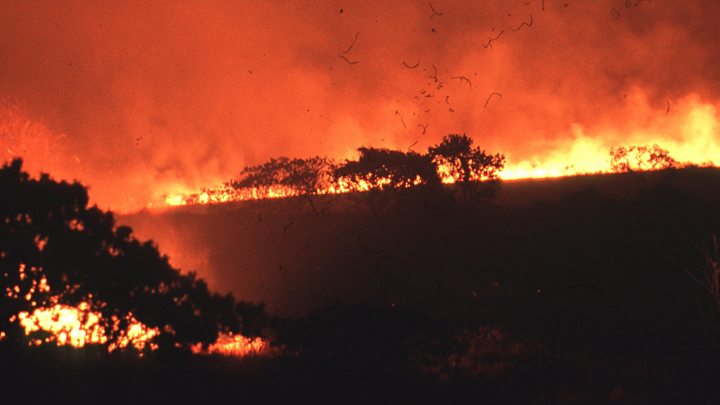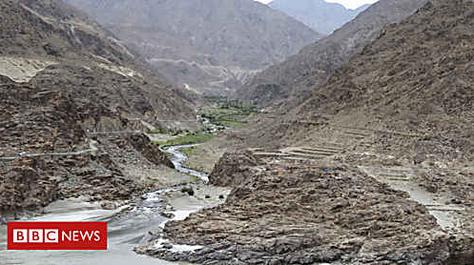
"Exploding human consumption" has caused a massive drop in the global wildlife population in recent decades, the WWF conservation group says.
In a report, the charity says losses in vertebrate species - mammals, fish, birds, amphibians and reptiles - averaged 60% between 1970 and 2014.
"Earth is losing biodiversity at a rate seen only during mass extinctions," the WWF's Living Planet Report adds.
It urges policy makers to set new targets for sustainable development.
The Living Planet Report, published every two years, aims to assess the state of the world's wildlife.
- 'Shocking' human impact on protected areas
- Why Guyana's rainforests are a scientist's dream
- Alarm as China eases ban on rhino horn use
The 2018 edition says only a quarter of the world's land area is now free from the impact of human activity and the proportion will have fallen to just a 10th by 2050.
The change is being driven by ever-rising food production and increased demand for energy, land and water.

Although forest loss has been slowed by reforestation in some regions in recent decades, the loss has "accelerated in tropical forests that contain some of the highest levels of biodiversity on Earth", the report notes.
It says South and Central America suffered the most dramatic decline in vertebrate populations - an 89% loss in vertebrate populations compared with 1970.
Marine freshwater species are particularly at risk, the report says. Plastic pollution has been detected in the deepest parts of the word's oceans, including the bottom of the Mariana Trench in the Pacific.
Freshwater species - living in lakes, rivers and wetlands - have seen an 83% decline in numbers since since 1970, according to the report.
The WWF calls for "a new global deal for nature and people" similar to the 2015 Paris agreement to tackle climate change by reducing greenhouse gas emissions.
"Decision makers at every level need to make the right political, financial and consumer choices to achieve the vision that humanity and nature thrive in harmony on our only planet," the report says.
The data, gathered from peer-reviewed studies, covers more than 16,700 populations belonging to 4,000 species around the world.
The WWF's methodology has been criticised. One conservationist told us at the BBC in 2016 that the data in the 2016 report was skewed towards western Europe, where figures were more readily available.
Science & Environment
Parker Sun probe smashes records
- 30 October 2018
- Science & Environment
History of chocolate pushed back in time
- 30 October 2018
- Science & Environment
'Worst year' for seals injured by rubbish
- 30 October 2018
- Norfolk
















No comments:
Post a Comment